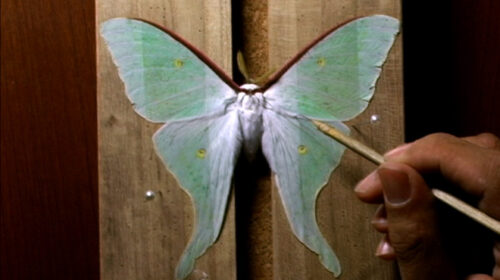Beetle Queen Conquers Tokyo

Japan's traditional fascination with insects could help Westerners re-imagine their relationship to nature.
Imagine cramming 128 million people onto an island the size of Montana — that's the density of Japan. Not surprisingly, space is at a premium and ergonomic design is right up there next to godliness.
Yet even in Tokyo, the epicenter of this figurative "can of sardines," people of all ages still make room for a tiny bit of wilderness. It is only fitting that they have become captivated by nature's most efficient creature in space, design, and function – insects.
They are sold live in vending machines and department stores, their plastic replicas included as prizes in the equivalent of a McDonald's Happy Meal, and are the subject of the No. 1 videogame in the country, MushiKing. From the smallest backyard to the top of Mt. Fuji, insects inspire an enthusiasm in Japan seen nowhere else in this world. Beetle Queen Conquers Tokyo discovers why Japan developed this rich and enriching social relationship with insects.
Like a detective story, the film untangles the web of influences behind Japan's captivation with insects. It opens in modern-day Tokyo where a single beetle recently sold for $90,000, then slips back to the early 1800s, to the first cricket-selling business and the development of haiku and other forms of insect literature and art. Through history and adventure, Beetle Queen Conquers Tokyo travels all the way back in time to stories of the fabled first emperor who named Japan the "Isle of the Dragonflies."
Along the way the film takes side trips to Zen temples and Buddhist Shrines, nature preserves and art museums in its quest for the inspirations that moved Japan into this fascination while other cultures hurtled off towards an almost universal and profound fear of insects.
Beetle Queen Conquers Tokyo quietly challenges the viewer to observe the world from a perspective that will shift the familiar to the fantastic and just might change not only the way we think about bugs, but the way we think about life.